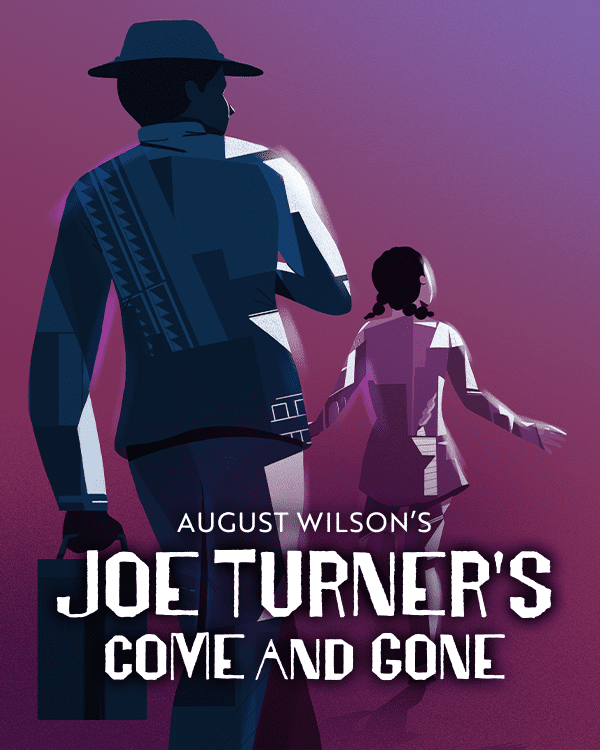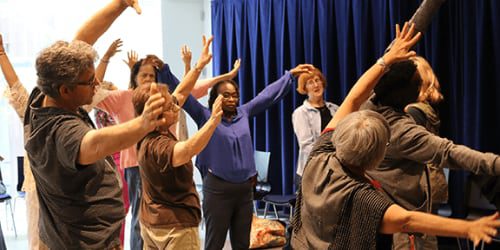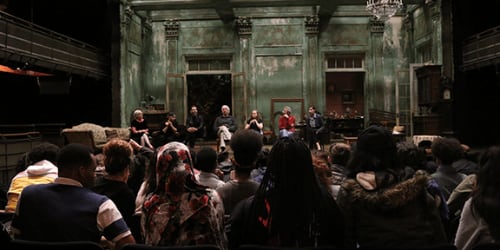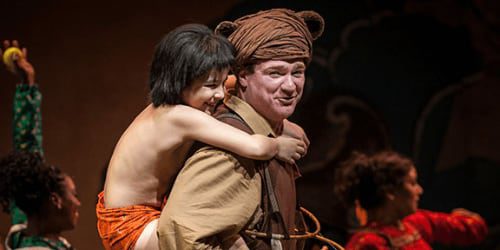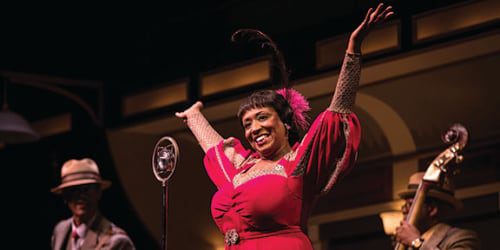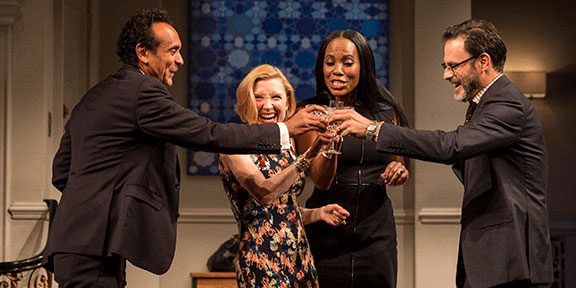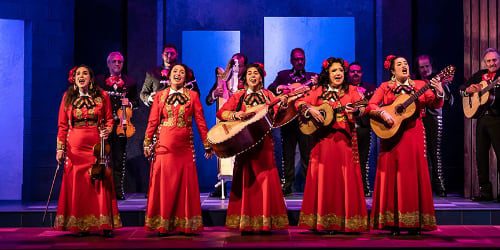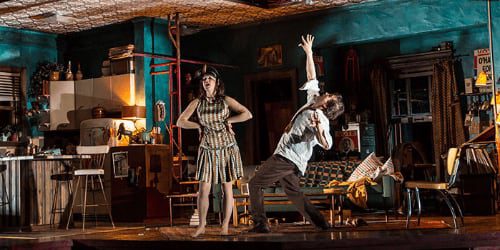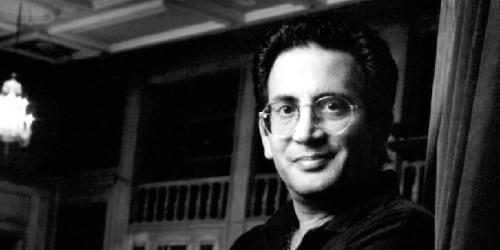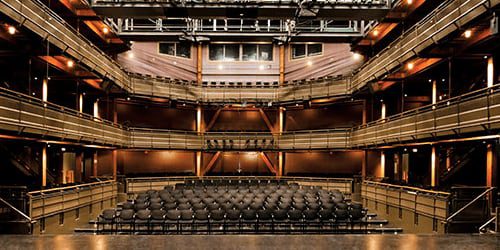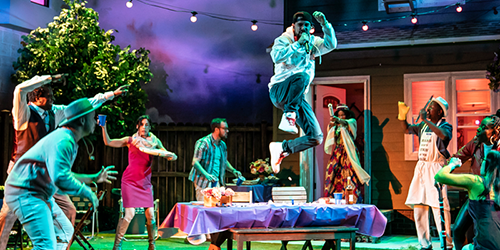The Penelopiad is on stage now!
GET TICKETS
“IT’S NOT A STRAIGHT PLAY. IT’S NOT A MUSICAL COMEDY OR OPERA,” The Penelopiad playwright Margaret Atwood explained in a 2007 interview. “The best word I could come up with was a ‘cabaret.’ Because it’s closest in form to a Bertolt Brecht, Kurt Weill…. in which there’s talking and then there’s musical numbers. But it’s not like the long form that we’ve come to know as ‘the musical.’ It’s more like a chamber piece—a smaller thing.”
However one might describe its current form, The Penelopiad’s origins are in Ancient Greece. Atwood, best known as the author of The Handmaid’s Tale, elevates Penelope, a relatively minor character in Homer’s Odyssey, to a principal role. While Homer focused on the epic journey of Odysseus, an Ithacan king who wanders for 10 years while returning home after the Trojan War, Atwood asks—and answers—the question of what Odysseus’ loyal wife does while her husband is away.
Although The Odyssey remains a familiar literary commodity—the stuff of high school English class—its origins are murky. Composed around the 7th or 8th century B.C.E., the poem takes place after the Trojan War, a conflict which may or may not have a basis in historical reality. If based on real events, the war likely occurred around the 10th or 11th century B.C.E.—hundreds of years before The Odyssey was written. If fictional, the story of the war must have emerged out of oral traditions of Greek mythology in a society in which few could read, and no one could turn to Netflix for an evening’s entertainment. Someone—perhaps someone named Homer, or perhaps multiple people over time—created a written form of the poem. Since the 19th century, scholars have sparred over the so-called “Homeric question,” which refers to the mystery of who wrote down the poem, when they wrote it, and whether they created it themselves or were simply writing down text that others had composed. Homer—or whomever—may have been stringing together memorized phrases and verses that had come down to him through several generations. What is nearly certain is that The Odyssey, in some version, was once performed aloud. Unlike the students of today who endure or enjoy the text in written form, the Ancient Greeks experienced the story via a lively performance that was perhaps chanted or sung.
Margaret Atwood’s notion of a “chamber piece,” featuring songs and dialogue, in some ways brings us closer to that tradition. But her intention isn’t to show us The Odyssey in its original form, but rather to take the focus off of “wily” Odysseus and place it onto “loyal” Penelope and twelve maids—mentioned briefly in The Odyssey—who serve in Penelope’s household. Atwood fans, or even those who are only vaguely aware of her reputation, won’t be surprised that she chooses to center women. Although she has often resisted the label of “feminist,” citing the vagueness of the term, critics have long noted her interest in gender issues. Her most famous work, 1985’s The Handmaid’s Tale, deals with a dystopian future in which women suffer brutal subjugation. And her interest in women, if not feminism exactly, runs all through her work, appearing in her very first novel, The Edible Woman. Written in 1965 and published four years later, the novel tells the story of Marian, a woman who finds herself losing her agency and unable to eat after her boyfriend proposes. While that premise might seem unremarkable today, Atwood penned it just a few years after Betty Friedan’s 1963 book The Feminine Mystique opened up the question of whether women might long for something other than domesticity, marriage, and motherhood, and years before second-wave feminism ushered in a wave of legal and social changes for women. Atwood continued her focus on women with books such as Cat’s Eye, her 1988 novel about a woman’s recollections of her childhood friendships with other girls; The Robber Bride, her 1993 exploration of three women’s friendships and romantic jealousies; and most recently The Testaments, her 2019 sequel to The Handmaid’s Tale.
Now 84 years old, Atwood has witnessed eight decades of women’s progress and setbacks, and for nearly 60 years has been a prominent literary figure. Although she sets many of her works in contemporary times or imagined futures, she places The Penelopiad in Ancient Greece, in the same world as The Odyssey. And yet, the piece bursts with contemporary flavor, and is clearly the product of a 21st century mind; Atwood penned it, first as a novella rather than a play, in 2005. A few years earlier, she had been invited to join a project in which writers retell myths in their own words. After nearly backing out, she recalled her high school experience reading The Odyssey, in which she had been struck by the brief appearance and unfortunate fate of Penelope’s maids. Two years after the novella’s publication, Atwood’s stage adaptation was performed at the Swan Theatre, Stratford-upon-Avon. When asked why she had ventured into the world of theater, Atwood mused, “Only one reason—it’s fun! Why do we call a play a play? Why do we use the same word for a play as we do for playing the piano and children at play? So if it isn’t fun, in the broadest sense, if it isn’t engaging, there’s no point in doing it.”
Neena Arndt is the Resident Dramaturg for Goodman Theatre.
